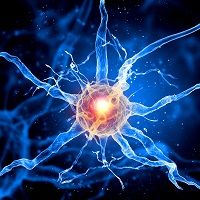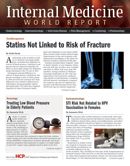Publication
Article
Internal Medicine World Report
Researchers Discover Breakthrough Chemical for Treatment of Neuropathic Pain
Author(s):
A team of investigators from the University of California (UC) Davis has discovered a compound that can potentially combat chronic pain by blocking key chemicals.

A team of investigators from the University of California (UC) Davis has discovered a compound that can potentially combat chronic pain by blocking key chemicals.
The Journal of Pharmacology and Experimental Therapeutics reported that 6-chloro-8-(glycinyl)-amino-β-carbolin, or 8-Gly inhibited the formation of nitric oxide (NO) and activation of nuclear factor κ-light-chain-enhancer of activated B cells (NF-κB) in macrophages.
In a press release, Fredric Gorin, professor and chair of the UC Davis Department of Neurology and the study’s co-principal investigator explained after the peripheral nerve sustains an injury, microglia — a type of macrophage located in the spinal cord — releases therapeutic chemicals along with NO. Since NO has been suspected to initiate and sustain inflammation, it has led investigators to believe that counteracting the chemical at the point of injury is key to preventing chronic pain syndrome development.
8-Gly carb, included in a group of natural and synthetic organic compounds called β-carbolines, has been implicated in previous research to decrease NO production. Although several types of β-carbolines blocked a precursor called tumor necrosis factor α — associated with NO pathways and the reduction of the cytokine interleukin -1β — 8-Gly carb did not decrease tumor necrosis factor α levels or interleukin -1β — indicating that the new compound still isn’t completely defined — Gorin also mentioned.
.
“8-Gly carb was significantly more potent than the NOS inhibitor NG-nitro-L-arginine methyl ester in inhibiting constitutive and inducible NO formation in primary rat macrophages,” the authors reported. However, they also mentioned that only at levels several times higher required to block NO did 8-Gly carb successfully block NF-κBgene expression in differentiated THP1-XBlue cells, a NF-κB reporter macrophage cell line.
“Thus, this novel carboline derivative holds promise as a parent compound, leading to therapeutic agents that prevent the development of neuropathic pain mediated by macrophage-derived NO without interfering with cytokine expression required for neural recovery following peripheral nerve injury,” the investigators determined.
Moving forward, Gordin expressed plans to further test this and related compounds in subsequent clinical trials.






